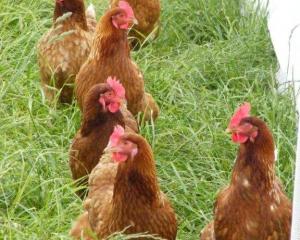
Sheep and beef farmers are doing it tough due to an economic downturn but it has been worse, a southern farm consultant says.
Rural Solutions owner Graham Butcher, speaking at a Federated Farmers Tips For Tough Times event in Invercargill last week, said he had been a consultant in Otago and Southland for many years and had experienced economic downturns before, including the 1980s.
"I cut my consulting teeth on Roger Douglas and I don’t think this is anywhere near as bad as it was back in the day."
Farmers had more equity in their businesses now, he said.
Back then, he was involved in the negotiations at "discount meetings", where debt was written off to create equity, allowing farmers to leave their land.
"They were sad days, they were tough meetings — we are nowhere near like that."
Farmers needed a plan to navigate this "difficult" time.
"Do your budget and be realistic."
Predicting commodity prices was challenging but he was confident there would not be a big drop in the schedules for sheep and beef farmers.
He had looked at peak prices for the past three years and predicted lambs would fetch $6.40/kg in February 2024.
"I’m reasonably happy with that."
An annual budget would help farmers create strategies to minimise the impact of an economic downturn in the short and medium term and show a bank they had a plan and were in control.
"That’s what a bank wants to hear — it gives them confidence."

Farmers should get the soil tested on their properties to aid those decisions, he said.
"Soil testing is cheap so know what your soils are like."
With the information, a farmer could prioritise the paddocks in need of fertiliser.
Animal health costs should not be deferred, he said.
"Don’t cut animal health — if you make a shortcut today, you’ll lose production tomorrow."
A strategy a farmer could explore was increasing scale by leasing land and spreading fixed costs.
Farmers should ignore what other farmers were paying to lease land, he said.
A budget would reveal what a farmer could pay for the lease.
Other strategies include stock policy alterations, getting more efficient with feed management and identifying barriers to higher performance per head.
"What is holding those ewes up for another 10% scanning?"
Farmers should raise the body condition score by feeding more to lighter ewes.
"A lot of effort needs to go into bringing up the bottom end — it’s really important."














